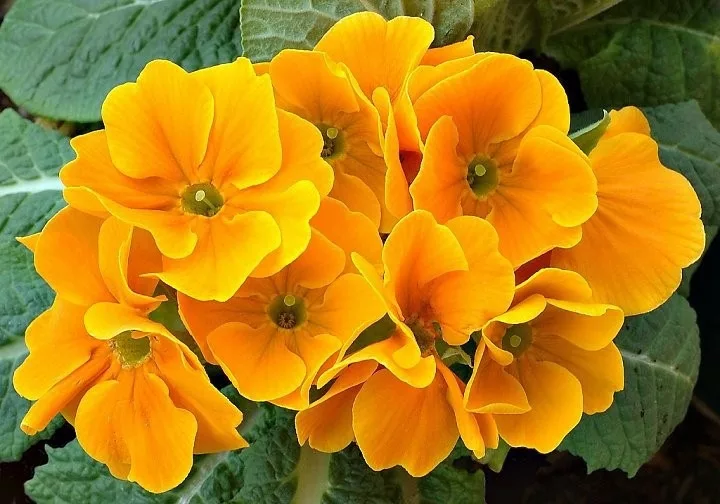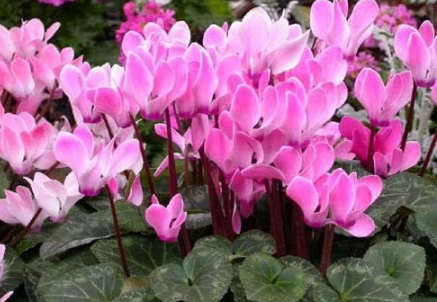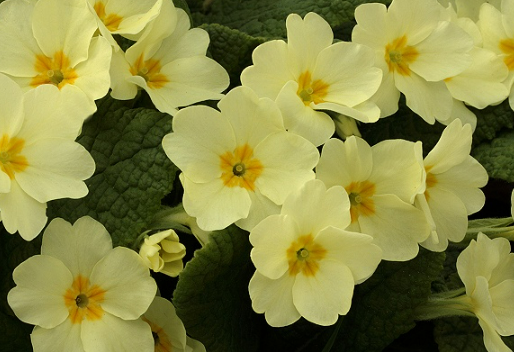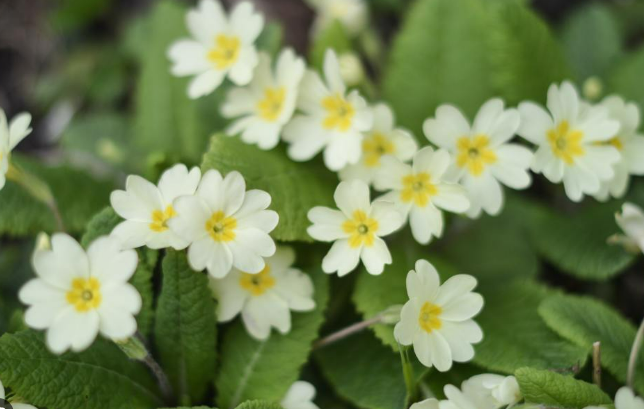 For your primula plants to have a good chance of germinating successfully, it’s crucial that they get plenty of light and air. When you’re sowing the seeds, be sure to sprinkle them onto the top of the compost without burying them. For seeds that take longer to germinate, such as double primroses, hose-in-hose, jack-in-the-green, auriculas, and most species, you may want to consider planting them on vermiculite or very fine gravel above the compost. Once you’ve planted them, water the seeds gently using a fine rose. To protect them from harsh weather conditions, place a perforated seed tray of the same size over the top and weigh it down with a rock. By following these simple steps, you can ensure that your primula plants will be healthy and flourishing.
For your primula plants to have a good chance of germinating successfully, it’s crucial that they get plenty of light and air. When you’re sowing the seeds, be sure to sprinkle them onto the top of the compost without burying them. For seeds that take longer to germinate, such as double primroses, hose-in-hose, jack-in-the-green, auriculas, and most species, you may want to consider planting them on vermiculite or very fine gravel above the compost. Once you’ve planted them, water the seeds gently using a fine rose. To protect them from harsh weather conditions, place a perforated seed tray of the same size over the top and weigh it down with a rock. By following these simple steps, you can ensure that your primula plants will be healthy and flourishing.
To ensure successful growth, choose a shaded area outside to plant your seeds. It’s important to regularly check the plot for moisture and keep it hydrated, so be sure to water it frequently and avoid letting the compost dry out. Once the seeds begin to sprout, remove the cover and be mindful of snails that could damage your plants. Keep in mind that polyanthus and primrose typically germinate within three weeks, while auriculas and sieboldii may take longer to sprout – up to six weeks in some cases. Some species require natural freezing and thawing to properly start growth, so it’s best to begin planting as early as possible.

If you want your seeds to have the best chance of growing, it’s crucial to keep them in a cool and damp place. The last thing you want is for high temperatures to prevent your seeds from sprouting, or for dehydration to kill them during the germination process. Don’t be tempted to plant your seeds under glass in winter, either – even on sunny days, the temperature can rise too much for successful germination. Aim for a temperature range of 12-15 degrees Celsius, as anything above 18 degrees can spell disaster for your seeds. When you’re starting out, it’s a good idea to avoid heated propagators altogether to give your seeds the ideal conditions they need to grow.














